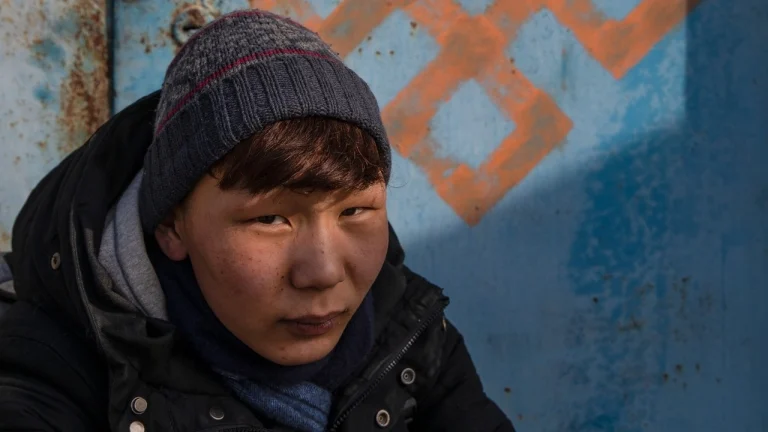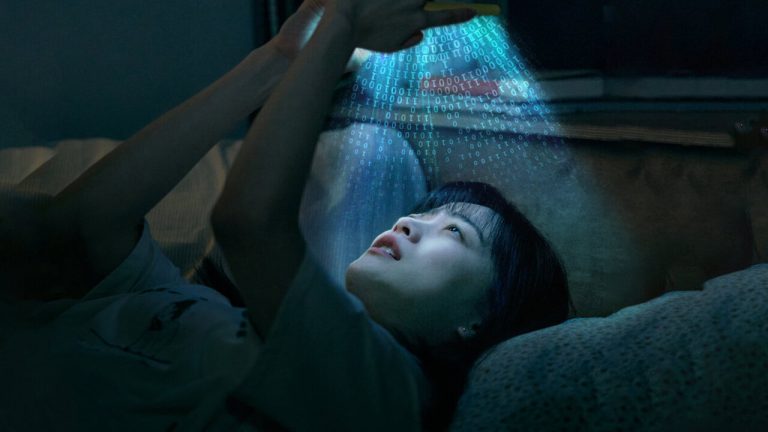Quentin Hsu’s debut feature, “Admission” (Original title: Ru Xue Xu Ke), takes us through the lives of a young married couple as they face a nightmarish scenario. The entire film revolves around their desperate attempts to help their six-year-old son secure a place in an elementary school. In the process, they get interviewed by the school board as strictly as their son does. This process includes an assessment of their character beyond their son’s. For someone who didn’t need to go through what they do, it sounds strange and nightmarish.
It’s one thing to have some basic expectations from the kid, but it’s a whole other matter to expect parents to pass such tests. Mind you, we’re talking about a six-year-old who will attend these classes for a few years before heading elsewhere. Ideally, there shouldn’t be this intense pressure on someone so young. Still, considering the fiercely competitive present world, with schools only accepting the creme de la creme, these heightened expectations seem plausible. The school’s assessment, however, seems less about the child’s intellect or curiosity and more about his parents’ character.
Hsu and Chi-An Lin’s script analyzes the intensity of such tests through their ripple effects. It shows the parents, Li Wei (Yang Wang) and Sun Kiang (You-Nian Liu), contemplating the test result, worried about its effects on the kid’s further education. The film covers only a few hours from that day, but it introduces parts of their marital lives that can have a far-reaching impact on their child’s future. The whole thing feels as delicate and tricky as a Jenga game. One wrong move and you’re out of the game. That instantly makes it a high-stakes affair, even if it takes place within the confines of closed walls.
Hsu treats this chamber drama as a slow-burning suspense thriller as the parents try to figure out what went wrong during the test. While it’s a film about the child’s immediate academic future, it also becomes an investigation of parental maladies. It includes their marital or educational backgrounds, hopes and ambitions, and how they affect each other’s futures. That would predictably lead to mudslinging in some shape or form, but Hsu doesn’t lean heavily on churning out that form of drama. He reveals the potential reasons for their interpersonal malice, but doesn’t make emotional outbursts the focal points of their interactions.

We don’t see characters breaking out of their solemn, well-mannered postures to become aggressive, even when they feel helpless, angry, or impatient. Their cold, calculated analysis of the world makes the film chilling. “Admission” maintains that tone while showing an oppressive sense of lack of control felt by the kid. The critique is less about the system and more about the people who occupy his life and have hitherto shaped his personality. So, his silences around his parents seem louder, since he feels nearly burdened into a form of perfection he never signed up for.
The premise revolves around the assessment, but the script uses it mainly to interrogate parental woes and their impact on a child’s psyche. So, ‘Admission’ falls in line with films like ‘Marriage Story,’ as the signs of a disintegrating marriage creep up now and then throughout its duration. The whole charade reintroduces the couple to their old wounds, as they try to prove their worth or reflect on their untapped potential, letting the core of their present admission-related anxiety almost take a back seat. It shows up through their long interactions with Agent Lang (Hongwei Wang), hired to help the couple understand the school committee’s temperament, and Director Jo (Nai An). Through them, the film hopes to convey the intensity of Li and Sun’s circumstances.
Hsu does not introduce tension from heated debates or gestures. Instead, he gradually builds a sense of unease from the couple’s occasional mutedness or their reluctance to discuss a topic. The camera often stays still and at a moderate distance, observing their awkward and assured movements to convey their ever-shifting arc between rejection and acceptance. Sadly, their interactions get redundant after a point, since the script does not go to the required lengths in exploring their marital discontent or parental concerns. The film remains focused on its stilted presentation but lacks the narrative substance to back up its apparent solemnity.
The script does deserve praise for introducing the dichotomy between Li’s sternness and Sun’s friendliness, and its correlation with their gender roles. Yang Wang translates it remarkably, as she presents Li’s stoic assertiveness while exposing her underlying regrets as a woman left to tend to domestic duties despite her creative capabilities or intellectual curiosities. Yet, the film leaves more than necessary for interpretation, while it could have milked out every ounce of unnerving tension from their vexations, almost like a Bergman film. It had the potential to hit those unforgettable emotional notes, but it loses itself in repeating the qualms instead of taking a few steps further in analyzing them.




![Cairo Station [1958] – The Struggles against Sexual Repression and Social Oppression](https://79468c92.delivery.rocketcdn.me/wp-content/uploads/2017/06/cover-768x584.jpg)
![Trial on the Road [1971] Review – A Searing Examination on the Thin Line of Demarcation between ‘Hero’ and ‘Traitor’](https://79468c92.delivery.rocketcdn.me/wp-content/uploads/2019/08/Trial-on-the-Road-1971-768x432.jpg)


